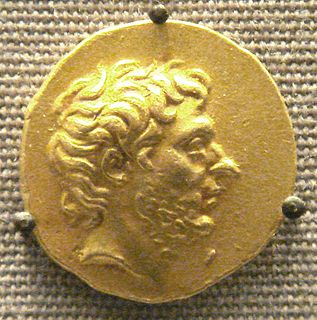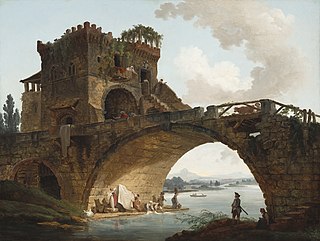Related Research Articles

Lucius Quinctius Cincinnatus was a Roman patrician, statesman, and military leader of the early Roman Republic who became a legendary figure of Roman virtue— particularly civic virtue —by the time of the late Republic.

Titus Quinctius Flamininus was a Roman politician and general instrumental in the Roman conquest of Greece.
The lex Canuleia, or lex de conubio patrum et plebis, was a law of the Roman Republic, passed in the year 445 BC, restoring the right of conubium (marriage) between patricians and plebeians.
Quintus Fabius Vibulanus, son of Marcus Fabius Vibulanus, was consul of the Roman Republic and one of the second set of decemviri.

The gens Quinctia, sometimes written Quintia, was a patrician family at ancient Rome. Throughout the history of the Republic, its members often held the highest offices of the state, and it produced some men of importance even during the imperial period. For the first forty years after the expulsion of the kings the Quinctii are not mentioned, and the first of the gens who obtained the consulship was Titus Quinctius Capitolinus Barbatus in 471 BC; but from that year their name constantly appears in the Fasti consulares.
Lucius Quinctius Flamininus was a Roman politician and general who served as consul in 192 BC alongside Gnaeus Domitius Ahenobarbus. He was eventually expelled from the Senate by Cato the Elder.

Titus Manlius Imperiosus Torquatus was a famous politician and general of the Roman Republic. He had an outstanding career, being consul three times in 347, 344, and 340 BC, and dictator three times 353, 349, and 320 BC. He was one of the early heroes of the Republic, alongside Cincinnatus, Cornelius Cossus, Furius Camillus, or Valerius Corvus. As a young military tribune, he defeated a giant Gaul in single combat in one of the most famous duels of the Republic, which earned him the cognomen Torquatus after the torque he took from the Gaul's body. He was also known for his moral virtues, especially his severity as he had his own son executed after he had disobeyed his orders in a battle. His life was seen as a model for his descendants, who tried to emulate his heroic deeds, even centuries after his death.
The gens Sextia was a plebeian family at ancient Rome, from the time of the early Republic and continuing into imperial times. The most famous member of the gens was Lucius Sextius Lateranus, who as tribune of the plebs from 376 to 367 BC, prevented the election of the annual magistrates, until the passage of the lex Licinia Sextia, otherwise known as the "Licinian Rogations," in the latter year. This law, brought forward by Sextius and his colleague, Gaius Licinius Calvus, opened the consulship to the plebeians, and in the following year Sextius was elected the first plebeian consul. Despite the antiquity of the family, only one other member obtained the consulship during the time of the Republic. Their name occurs more often in the consular fasti under the Empire.
The Roman–Latin wars were a series of wars fought between ancient Rome and the Latins, from the earliest stages of the history of Rome until the final subjugation of the Latins to Rome in the aftermath of the Latin War.
Lucius Furius Medullinus, of the patrician gens Furia, was a politician and general of the Roman Republic who was consul twice and Consular Tribune seven times.
Titus Quinctius Capitolinus Barbatus was a Roman statesman and general who served as consul six times. Titus Quinctius was a member of the gens Quinctia, one of the oldest patrician families in Rome.
Gaius Sulpicius Peticus was a prominent fourth century Roman politician and general who served as consul five times and as dictator once. Sulpicius was a member of the gens Sulpicia, a prominent patrician family which had attained the consular dignity a great number of times since the foundation of the republic. The familial relationship between Sulpicius and other known contemporary members of the gens is unknown however, with the only things known about his heritage being that his father was named Marcus and his grandfather was named Quintus.
Lucius Julius Iullus was a member of the ancient patrician gens Julia. He was one of the consular tribunes of 438 BC, magister equitum in 431, and consul in 430 BC.

The Battle of the Anio River was fought in 361 BC between the Roman Republic, led by the dictator Titus Quinctius Pennus Capitolinus Crispinus, and a group of Gauls who had encamped near the Via Salaria beyond the bridge over the Anio River.
Lucius Quinctius Cincinnatus was a consular tribune of the Roman republic in 438, 425, 420 BC and possibly consul in 428 BC.
Titus Quinctius Poenus (Pennus) Cincinnatus was a consul of the Roman Republic in 431 and 428 BC and a consular tribune in 426 BC. He might have been consular tribune again in 420 BC.
Aulus Sempronius Atratinus was a consular tribune of the Roman Republic in 425, 420, 416 BC and possibly consul in 428 BC.
Titus Quinctius Capitolinus Barbatus was a consul of the Roman Republic in 421 BC.
Gaius Poetelius Libo Visolus was a Roman politician and general who lived in the mid-fourth century BC and served multiple times as consul.
Lucius Veturius Philo was a curule aedile in 210 BC, praetor of Cisalpine Gaul in 209 BC, propraetor of the same province in 208 BC, consular legate in 207 BC, consul in 206 BC, and magister equitum in 205 BC. He was renowned for having been the first to announce to the Roman Senate the news of the great victory won over Hannibal Barca at the Battle of Zama, which ended the Second Punic War.